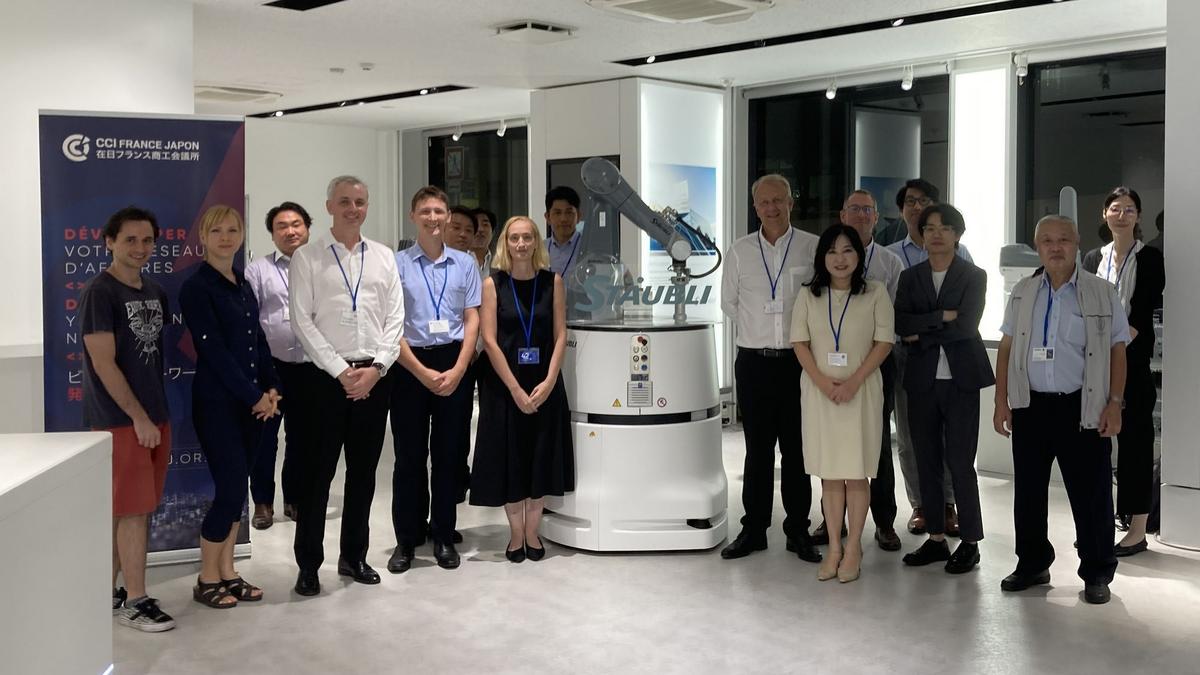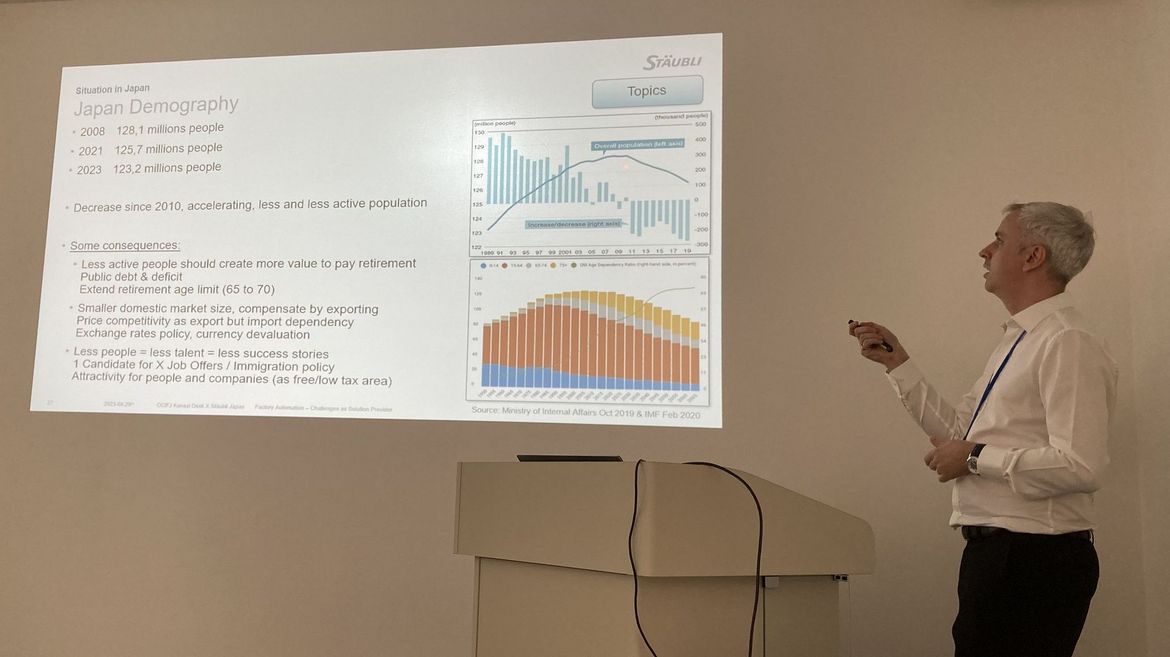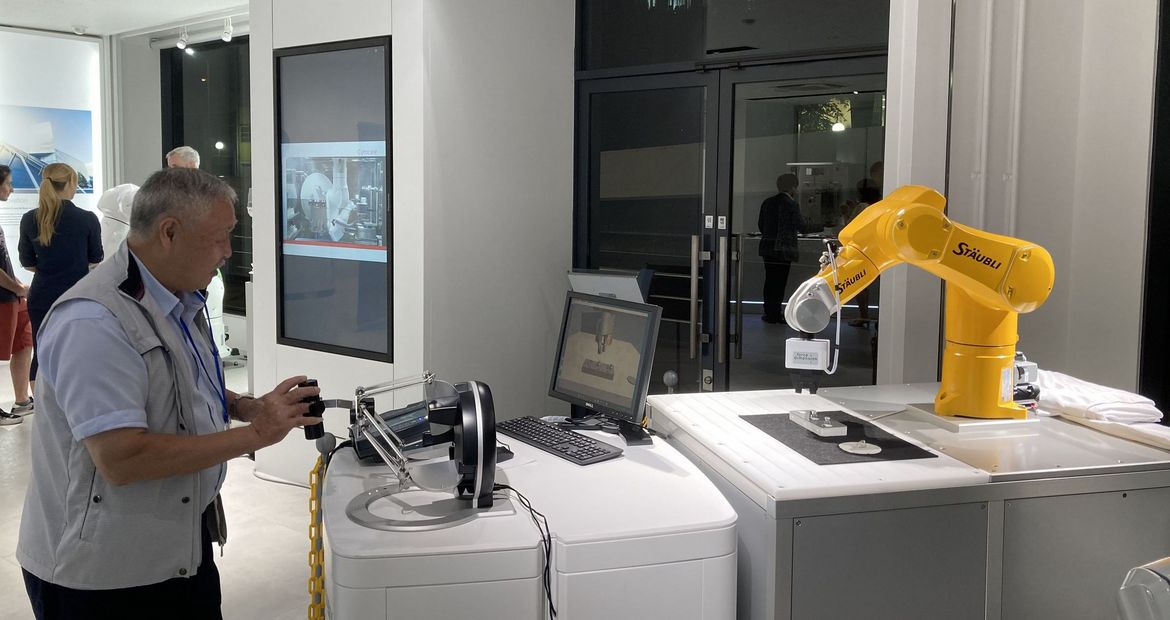Kansai Bilans d’évènement Industrie • Santé - médical - pharmaceutique
An Overview of Factory Automation in Japan by Stäubli

For the 6th edition of our Kansai Sectoral Gatherings, we visited Stäubli's showroom in Umeda, talking Factory Automation among a throng of robots.
Yesterday, we held our sixth edition of this year’s sectoral gatherings at Stäubli’s showroom, right next to Umeda. Stäubli’s team had prepared a stunning presentation that was giving a broad overview of the situation of Factory Automation in Japan.
Stäubli is a Switzerland-based company that has 130 years of experience in automation, starting with weaving machines and working its way through specialized connectors and robots, thanks to a mix of innovation and acquisition. They now have expertise in 20 different industrial segments, which gives them a diverse vision of the issues arising in the industry.

The assessment regarding Japan is actually quite gloomy, and we could only make rather negative observations: despite a rapidly aging population that would require the society to replace the decreasing workforce with automated solutions whenever it can, automation in Japan is actually lagging behind and moving at a slow pace. We drew the same conclusions earlier this year regarding the related subject of digital transformation. As a result, Japan’s productivity is taking a worrying dip, with people working long hours to produce less than other countries with better work-life balance.
At the same time, Japan’s industry is lacking the innovation necessary to compete internationally. It was observed that the comfort offered by Japanese society tends to make people afraid to take risks and try new solutions. As a consequence, Japan often waits for others to develop and try new solutions before adopting them, which means that the Japanese industry does not offer solutions that would stand out on the market. Despite the current depreciation of the yen and Japan's manufacturing capacity, we can only notice that exports are low.
Finally, you would think that introducing robots in the production lines would be perceived as labor cost reduction, but high-end robots and their inclusion itself are actually very expensive and require a lot of investments that many companies are not willing to make. Then, introducing robots in a production line also means more qualified employees, because it takes much more skills and knowledge to program, repair or maintain a robot than to just perform the task taken up by it.
As Stäubli’s speakers pointed out however, factory automation could bring many positive improvements to Japan’s economy.
First of all, robots can perform better, more precise tasks than humans, and with a much lower rate of mistakes. As such, introducing more robots could allow Japan to shine once more in the field of very high-end technological products, singling itself out from its local competitors in the manufacturing industry.
Obviously, automation would also be an answer to the aging population and the dire necessity to increase production drastically to keep up the pace and provide enough revenue for the elderly.
The bottom line of this overview was that Japan in general and Kansai in particular are a manufacturing country/region. It has the potential to become a truly productive place for high-end products and take the lead again in specific fields. However, it needs to face and address its issues without any delay if it does not want to fall behind beyond any hope of recovery.
In this matter, foreign companies established in Japan are more than willing to help and bring their insight. As was pointed out, Japan already showed its incredible capacity to transform in a blink by relying on foreign expertise during the Meiji era. It might be time for another magic trick of the same kind.
In conclusion, all the attendees agreed that the matter is vast and that we could only scratch it that evening. We parted while already making plans for a greater event on the subject, so keep an eye out for our upcoming “Factory Automation Business Summit” sometime next year, and of course do not miss the Smart Manufacturing Summit in March 2024!

